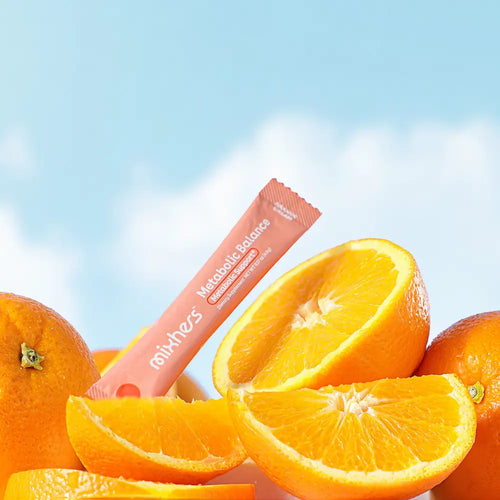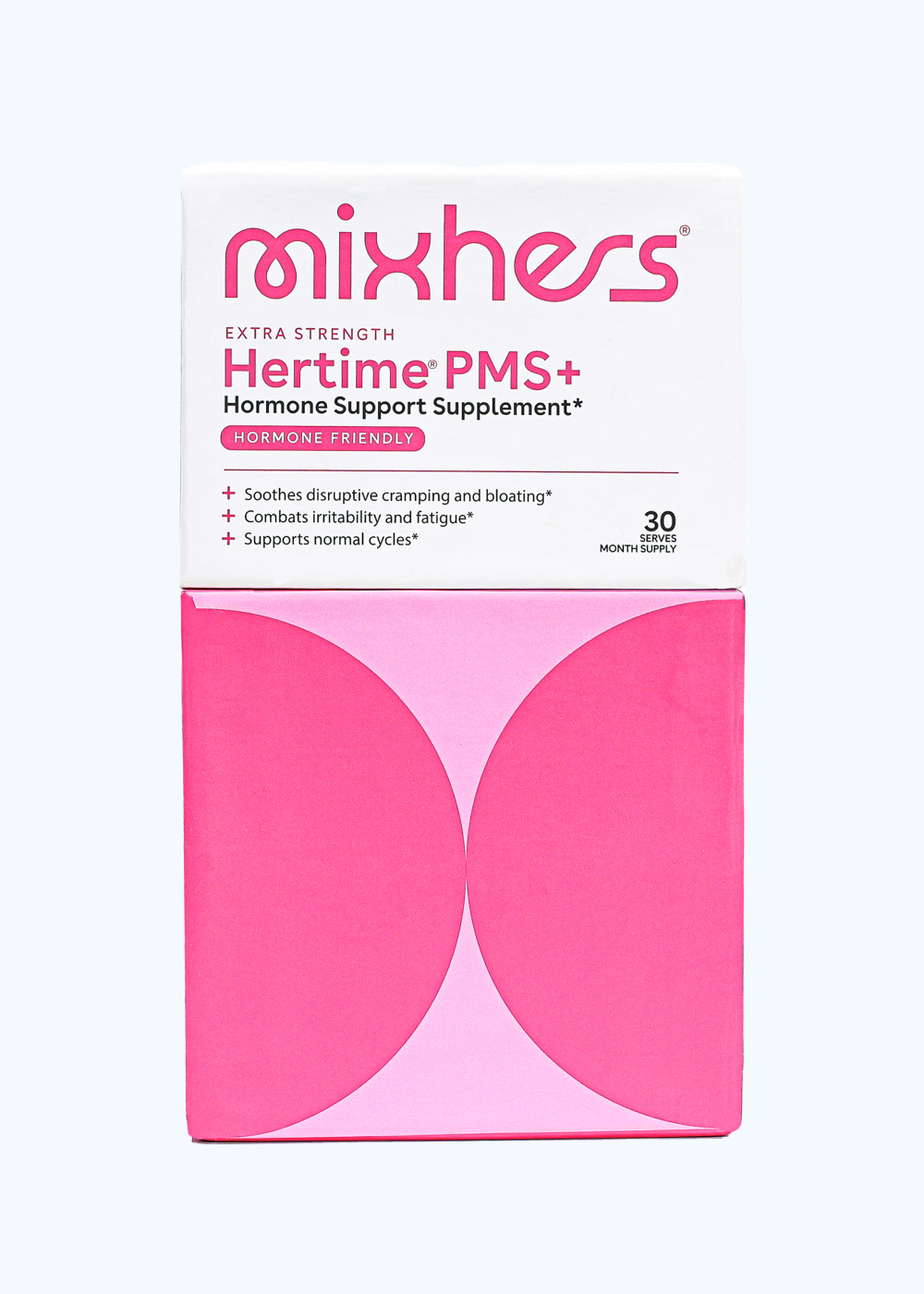For most people, a general multivitamin is a great choice because it contains a variety of vitamins and minerals that your body needs to thrive. Hermulti is an exceptional multivitamin supplement because it contains all the major vitamins and minerals you need, in effective amounts. It also contains omega-3 fatty acids, which aren't vitamins or minerals but are still necessary for optimal health. Omega-3 fatty acids are found in fatty fish such as salmon and tuna. Omega-3 fatty acids are essential fats, which means our bodies can't make them but must instead get them from the foods we eat.
If we have inadequate intake of omega-3 fatty acids, we could experience skin dryness, mood swings, poor sleep quality, and joint pain. In addition to taking Hermulti, we can also get omega-3 fatty acids from seafood, walnuts, kidney beans, and fish oil.
Here are some of the top vitamins and other nutrients we can find in products like Hermulti, and why each ingredient is essential for good health.
Vitamin D: Often called the "Sunshine Vitamin," vitamin D helps the body absorb calcium. That's why you should always take a vitamin D supplement along with your calcium supplement. When vitamin D and calcium are taken together, they provide maximum bone-support benefits. Vitamin D also helps stave off osteoporosis and boosts mental focus.
Potassium: Potassium is a mineral and electrolyte that is found in all body tissues. It helps maintain optimal intracellular fluid volume and supports normal cell function. Taking potassium may reduce your risk of developing kidney stones and help keep your blood pressure in the normal range.
Vitamin A: Vitamin A is very important for vision support. It also boosts immune function and helps support your reproductive processes.
Vitamin E: To keep your blood, vision, skin, and reproductive system working optimally, it's important to make sure you're getting enough vitamin E. The good news is that it's rare to experience a vitamin E deficiency. In addition to its status as an important nutrient, vitamin E is also a powerful antioxidant. Antioxidants are substances that can prevent or slow down cell damage caused by free radicals (unstable molecules produced by exposure to toxins). It's wise to take antioxidant supplements if you want to slow down the aging process in your body.
Vitamin K: If you're not familiar with vitamin K, don't worry. A lot of people are unaware that this vitamin even exists. Though it isn't as well-known as other vitamins, vitamin K is still important for good health. It's a fat-soluble vitamin that assists with bone metabolism, blood clotting, and building proteins.
Thiamine: Also known as vitamin B1, thiamine is important for nerve and muscle function. It also helps metabolize glucose and keeps the cells functioning optimally. Thiamine was the first B vitamin to be discovered by scientists.
Riboflavin: Our bodies need riboflavin (vitamin B2) because it helps us take the nutrients from the foods we eat and convert them into energy. Riboflavin also functions as an antioxidant and helps our bodies neutralize free radicals.
Niacin: Niacin is yet another B vitamin (vitamin B3, to be precise) that helps our bodies convert food into energy. Niacin helps keep our skin, nervous system, and digestive system healthy.
Vitamin B6: Vitamin B6 (pyridoxine) is necessary to keep our immune and nervous systems in good working order. We also need sufficient pyridoxine to help our brains develop normally.
Vitamin B12: Vitamin B12 (cobalamin) is very important for nerve function, cell metabolism, and red blood cell formation. Like the other B vitamins, it helps convert food into energy. Vitamin B12 also plays a role in the production of DNA.
Biotin: Our bodies need biotin (vitamin B7) to help us metabolize proteins and fats. Biotin also plays a key role in gene regulation and keeping the liver, hair, skin, and eyes healthy. Biotin can also help lower blood glucose.
Pantothenic Acid: Pantothenic acid (vitamin B5) helps us break down fats and create energy from the foods we eat. It also helps manage cortisol production and assists with wound healing.
Folate: Folate is-you guessed it-another B vitamin! This one is also known as vitamin B9, or folic acid. Folate is very important for mental health and immunity. When combined with vitamin B12, folate helps to form blood cells. Pregnant women usually need to increase their intake of folate, since they're more likely to be deficient in it. Folate deficiency in a pregnant woman increases her baby's risk of birth defects. That's why folate supplements are often recommended to women who are pregnant or are planning to become pregnant.
Iodine: Iodine is an essential micronutrient because your body needs it but can't produce it. That means you have to get iodine from the foods you eat or the supplements you take. Iodine is used for many different bodily functions and helps produce thyroid hormones. People with iodine deficiencies usually have thyroid problems.
Magnesium: If you care about the health of your heart, bones, and metabolism, you should make sure you're getting enough magnesium in your daily diet. Magnesium helps support healthy heart function and bone development. Low levels of magnesium can lead to an increased risk of heart disease, osteoporosis, and high blood pressure. If you're deficient in this important nutrient, a magnesium supplement can help.
Zinc: Zinc is well known for its role in boosting immune function. It also helps keep our skin healthy. Since it's a trace mineral, you only need a small amount of zinc every day to reap its benefits.
Selenium: Some fortified foods contain selenium, which is a trace mineral that helps control metabolism. Selenium is a powerful antioxidant and can reduce the risk of chronic disease.
Manganese: Manganese is yet another trace mineral that our body only needs in small amounts. Manganese assists with normal brain function, healthy nervous system function, and bone health.
Chromium: Chromium helps the body regulate insulin and blood sugar. It also assists with the metabolization of carbohydrates, fats, and proteins. Only a very small amount of chromium is needed by the human body each day.
Molybdenum: Though it has a funny name, molybdenum plays a serious role in activating certain chemical reactions in the body. It also helps break down sulfites, which are sometimes added to foods to preserve them. Sulfites can, unfortunately, build up in the body and cause a variety of problems (such as skin issues, breathing difficulties, and allergic reactions). Molybdenum can help minimize these reactions by breaking down sulfites in the body.
All of these important nutrients are found in ideal amounts within Hermulti. They can also be found in some multivitamin supplements that come in pill or capsule form.












